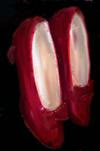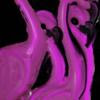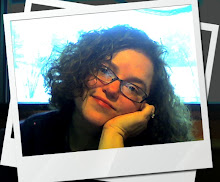
Why is mankind's search for god so
d#$%ed divisive?
d#$%ed divisive?
Add religion to death and taxes, in the count of what is certain in human life. Every culture has manifested a form of religion. Some of them may seem diametrically opposed to each other, but most religions have a fair number of eerie and telling similarities.
All of them have creation stories, for example. Most of them have flood narratives, messianic figures, and foretelling of the end times.
Judaism, Christianity and Islam are all derivatives of the same religion, worshipping the same god, and yet, there has been more slaughter in the name of these three faiths than is really conceivable.
Add to these "big three" the in-fighting between other religions, denominations, sects, cults, and radical philosophies, and you have a flavorful and volatile mix that is often a powder keg ready to go off at any time. (has gone off . . . continues to go off . . . )
And then there is the confounding problem of science and where it fits into the circle of faith. People can go so many ways in their views of science. My three-year-old's daycare teacher doesn't believe in evolution or the big bang theory because she takes a literal interpretation of the creation story in the bible. She also doesn't know what she feels about dinosaurs, since they weren't mentioned at all in the bible, but she really likes The Land Before Time movie, and has no qualms about showing it to either her own grandchildren or her charges.
There are creationists who denounce scientists, specifically evolutionists. There are scientists who denounce creationists. There are creationists who are scientists. There are more flavor combinations in the areas of science and creation than Baskin-Robbins can boast.
I can only speak out my own beliefs. What really confounds me is why there are all these disagreements in the first place. I have never seen a problem between believing in the big bang, evolution, and all of that, and believing in a creator. After all, the big bang theory necessitates the question of how/what/who caused the bang to occur?
My seven year old daughter has, to my happiness, developed a fascination for our reading bible stories together at night before bed. We read the Genesis account of creation last night (albeit a simplistic, child picture bible version). She had, of course, heard the story before, but her picture bible is nicely illustrated and the words are simple enough that she can really grasp her mind around it. She remembered watching science documentaries on TV with me - the ones that discuss the origins of the Earth and the extinction of the dinosaurs. She remembered that science is pretty firm on the notion that these events happened over the course of millions and billions of years, not a few days. But, interestingly, she didn't have a problem combining these two, seemingly conflicting worldviews. For this I am proud of her. She takes it all in stride and has no problem opening her mind up to the possibility that God's days are epochs to us, and that "and God said, 'let there be light' and there was light" was clearly a description of the big bang - the explosion of light from darkness, the exponential expansion of matter and energy in all directions from a central, unified, massive point.
Perhaps it is mankind's eternal struggle to question the bigness of our universe and the comparative smallness of our personal lives . . . perhaps it is the eternal quest to find reason and answers to our most troubling questions . . . perhaps it is our fear of non-existence . . . I'm not sure why it is, in the end, but regardless of whether you believe in a creator god(dess) perhaps you can find some measure of peace in knowing that the human psyche is united in its quest for that knowledge. The quest for the answer of "is there a god?" is so substantive in and of itself that it takes on a life of its own.
It is a force unto itself.


